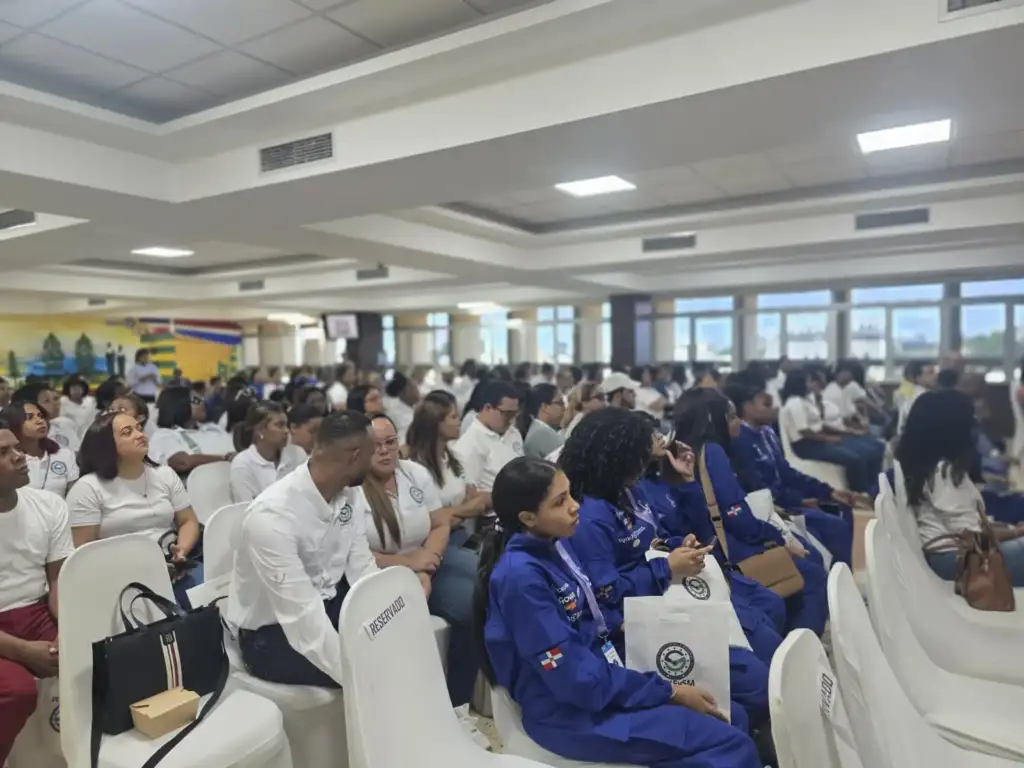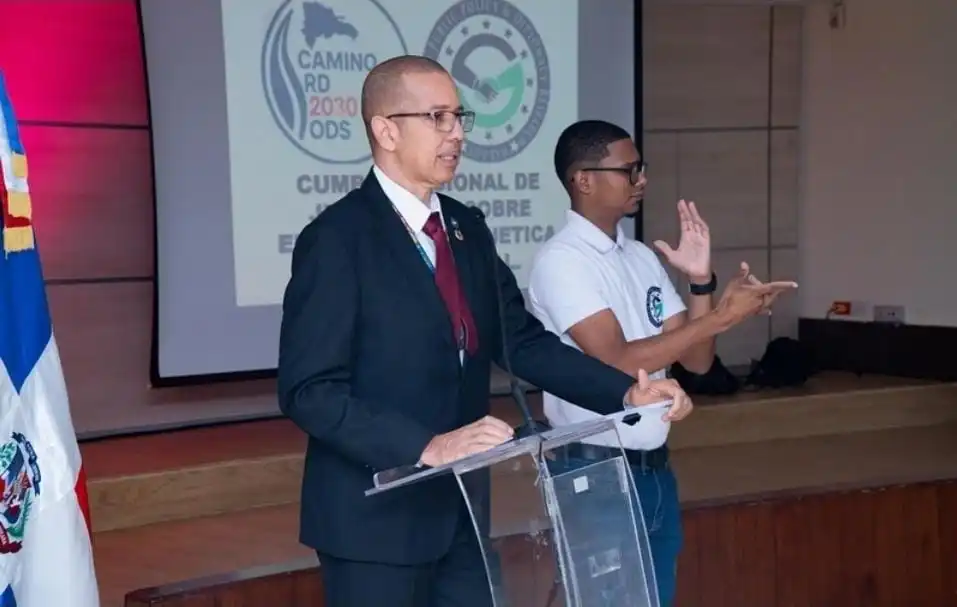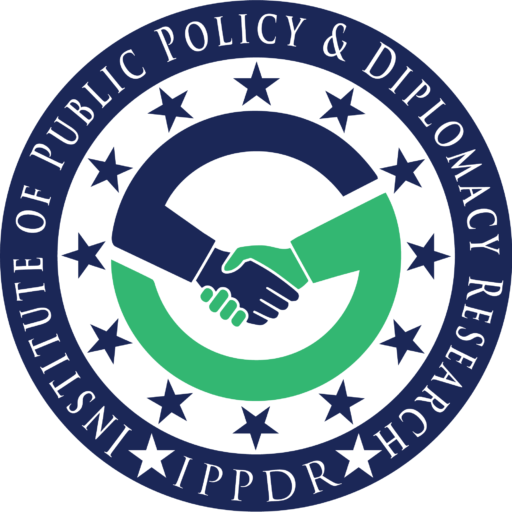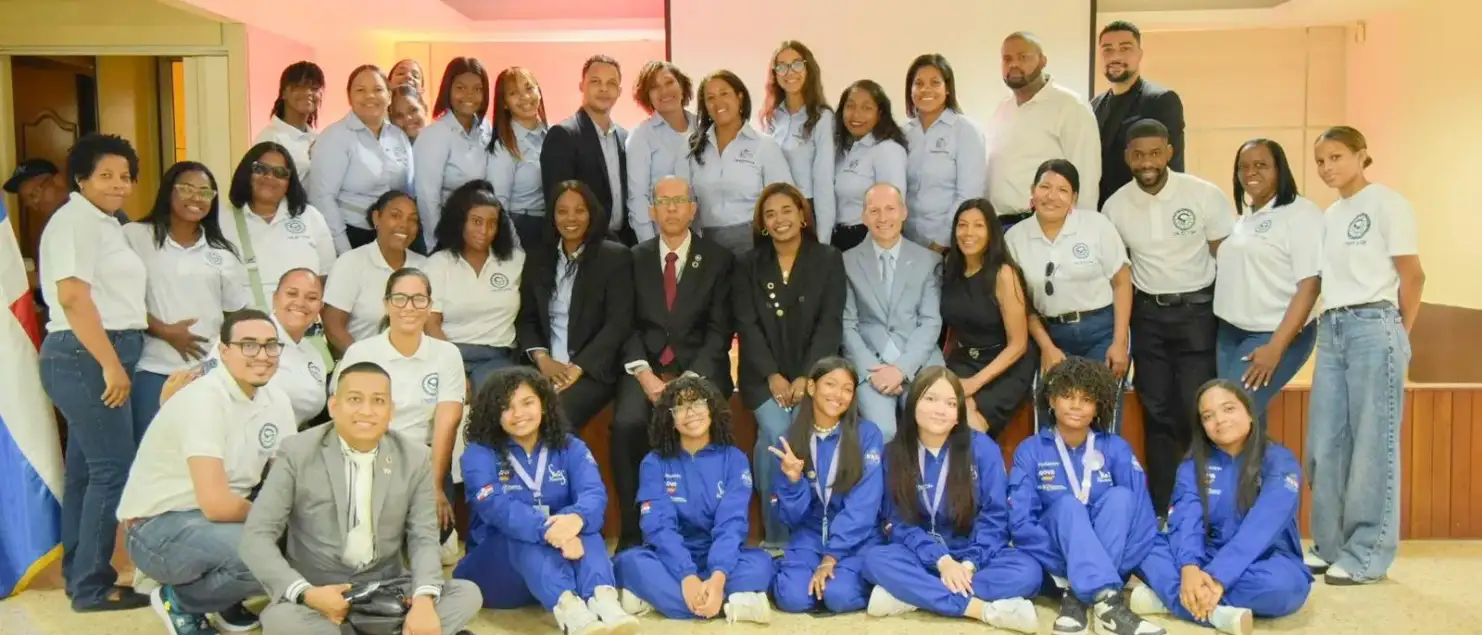First Cyber Education and Mental Health Summit in the Dominican Republic
IPPDR Marks History: First Cyber Education and Mental Health Summit in the Dominican Republic
Why the Dominican Republic?
The Institute of Public Policy and Diplomacy Research (IPPDR) achieved a historic milestone by hosting its first Cyber Education and Mental Health Summit in the Dominican Republic.
The nation increasingly embraces mental health and digital resilience as national priorities.
His Excellency, the President of the Dominican Republic, Luis Abinader, and Vice President Raquel Peña demonstrate political will by placing youth well-being, education, and digital safety at the forefront of their social agenda.
On this note, IPPDR chose Santo Domingo as the venue for both strategic and symbolic reasons. The Dominican Republic stands as a bridge, both geographically and culturally, between the Caribbean and Latin America.
Furthermore, its tradition of resilience and capacity to amplify regional and global dialogue made it the ideal site.

By hosting this summit, IPPDR reinforced its guiding principle:
“We do not observe change; we design it.”
By empowering Dominican youth, IPPDR delivered a message that peacebuilding in the digital age must begin with inclusive education, mental health protection, and digital literacy.
Inclusive Leadership and Participation
Lic. Indhira Elliot, Regional Director and Global Peace Ambassador of IPPDR, led the summit with vision and determination, ensuring inclusivity and accessibility at every stage. This underscored that diplomacy, when rooted in inclusivity, transcends traditional government-to-government dialogue and extends to every layer of society.

The summit gathered 287 youth and stakeholders, including educators, policymakers, disability rights advocates, and international partners. Students with disabilities, representatives from the Sign Language Department, and youth from marginalized communities actively engaged in the discussions.
Participants did not remain passive; they contributed through dialogue, problem-solving, and innovation.
This approach demonstrated IPPDR’s philosophy: peace and resilience remain sustainable only when every voice receives recognition and engagement.
Outcomes and Achievements
The summit produced concrete results:
Awareness Raised – Youth and educators sharpened their understanding of the dangers of cyberbullying, disinformation, and digital overload, while learning strategies for resilience and responsible digital citizenship.
Youth Empowerment – The 287 participants acted as designers of solutions, equipping themselves with confidence to serve as community leaders in cyber education and mental health.
National Contribution – The summit advanced the Dominican government’s agenda to integrate mental health and education, reinforcing the nation’s leadership role within the Caribbean.
Inclusive Diplomacy in Practice – By ensuring representation from diverse groups, IPPDR modeled inclusive, people-centered diplomacy that others can replicate regionally and globally.
Global Alignment with SDGs – The summit’s work advanced multiple pillars of the United Nations Sustainable Development Goals (SDGs):
SDG 3: Good Health and Well-being
SDG 4: Quality Education
SDG 10: Reduced Inequalities
SDG 13: Climate Action
SDG 16: Peace, Justice, and Strong Institutions
Why Cyber Education and Mental Health Matter
Significantly, in the digital era, youth remain both the most connected generation and the most vulnerable. Moreover, the internet unlocks opportunities for education, networking, and innovation, but also exposes young people to cyberbullying, misinformation, digital addiction, and psychological stress.
Global research shows that one in seven adolescents worldwide lives with a mental health disorder, and the undeniable presence of digital pressures worsens this crisis.
In the Dominican Republic, with its dynamic and youthful population, the challenge requires urgent and transformative action.
By addressing cyber education and mental health together, IPPDR reframed the narrative: technology serves not only as a risk, but also as a tool for peace, empowerment, and sustainable development when managed responsibly.
This dual approach significantly links personal well-being with global stability, reinforcing the principle that mental health forms a cornerstone of peace and security.
A Multilateral Perspective
The summit embodied the multilateral spirit of diplomacy. Anchored in the Dominican Republic, it extended far beyond national borders. The dialogue united local youth, civil society, government representatives, and international partners within a shared framework of global responsibility.
The inclusive participation of youth, NGOs, educators, and government actors reflected the multistakeholder nature of modern diplomacy. States no longer act alone; they act in partnership with non-state actors and civil society networks.

The summit exemplified Track 2 and Track 1.5 diplomacy, complementing formal state dialogue with the creativity and trust-building power of youth and civil society.
This model directly aligns with the UN’s Global Digital Compact and the Pact for the Future, highlighting the urgent need for collaborative, cross-sectoral governance of technology and mental health.
Looking Forward
The first Cyber Education and Mental Health Summit marks the beginning of a long-term movement. IPPDR commits to:
• Scale the model across Latin America and the Caribbean, adapting lessons to diverse contexts.
• Build youth networks that connect cyber education, mental health, and peacebuilding.
• Train a new generation of Peace Practitioners and Global Peace Ambassadors who integrate digital literacy and mental health into diplomatic security and resilience.
By aligning with the UN’s 2030 Agenda for Sustainable Development and reinforcing national initiatives, IPPDR envisions this summit as the foundation for a regional architecture on cyber resilience and youth empowerment.
Conclusion
The Dominican Republic, long a symbol of resilience, valor, and regional leadership, offered the perfect setting for this milestone.
Under the leadership of Indhira Elliot and with the participation of 287 youth and stakeholders, the summit proved that cyber education and mental health form inseparable pillars of peacebuilding in the 21st century.
By convening this summit, IPPDR affirmed that diplomacy today must extend beyond negotiations between states. Diplomacy must embrace the inclusive, multilateral engagement of youth, civil society, governments, and international institutions.
IPPDR stands firm in its commitment to ensure that young people not only adapt to the challenges of the digital age but also acquire the tools to design the future they deserve, rooted in resilience, dignity, and peace.
Proclamation
In conclusion, on behalf of the youth of the Dominican Republic, a Proclamation on Cyber Education, Mental Health, and Youth Empowerment has been created and signed.
This proclamation expresses the collective voice of youth and acknowledges the support of all partners. It stands as a living testament to the commitment of youth, government, civil society, and international partners to safeguard the mental well-being and digital future of the next generation.

